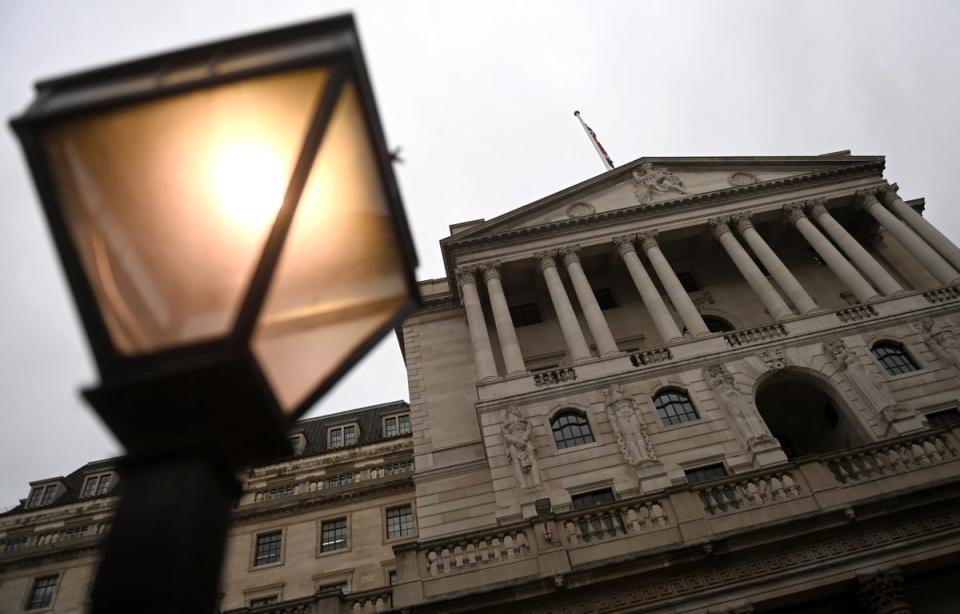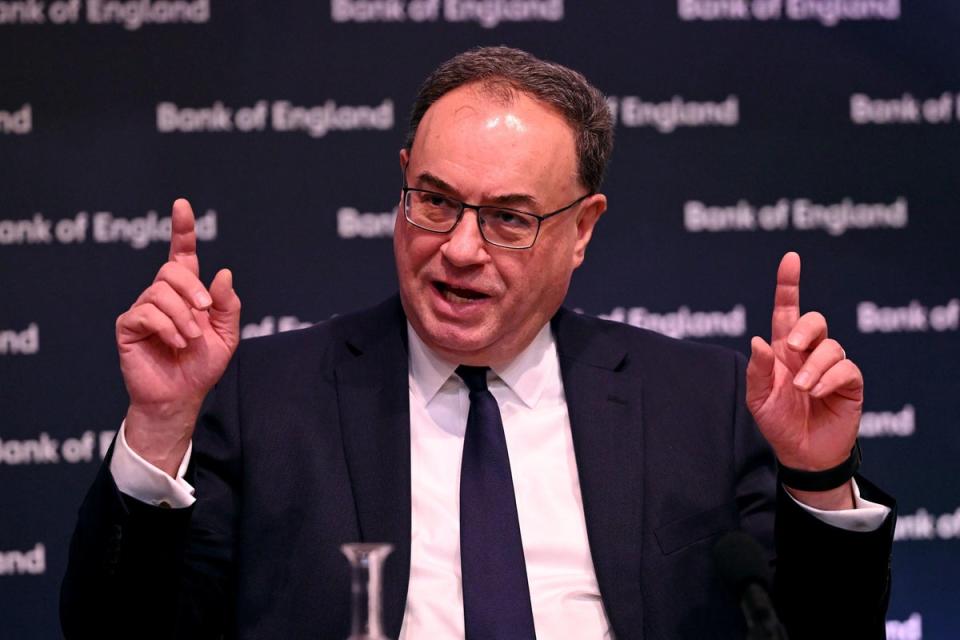Bank of England raises interest rates again in 10th consecutive hike

The Bank of England has raised interest rates for the tenth time in a row, putting more pressure on mortgage payers and businesses struggling to pay off loans.
Decision makers on the Bank’s Monetary Policy Committee (MPC) opted to hike the base rate from 3.5 per cent to 4 per cent, to help bring down double-digit inflation.
The Bank said that the UK is still headed for a recession, but stressed that the economic downturn could be shallower and shorter than previously expected.
Gross domestic product (GDP) is set to shrink by 1 per cent, from around 3 per cent in an earlier forecast.
This is because wholesale energy prices have fallen significantly since the MPC produced its last forecast in November and inflation has begun to fall from its peak last year.
Output will not return to pre-pandemic levels until 2026, the Bank says.
The pound fell 0.5 per cent to 1.231 US dollars after the half a percentage point rise, which was in line with expectations, while Sterling dropped 0.6 per cent to 1.12 euros.
Seven members of the MPC voted to increase the base interest rate from 3.5 per cent to 4 per cent, with two voting to keep it unchanged.
The MPC also softened its language, removing a promise to act “forcefully” to return inflation to its target level.
“Looking further ahead, the MPC would adjust the Bank rate as necessary to return inflation to the 2 per cent target sustainably in the medium term, in line with its remit,” the minutes of the meeting said.
Jeremy Hunt, the chancellor, said he supports the latest rise in interest rates.

“Inflation is a stealth tax that is the biggest threat to living standards in a generation, so we support the Bank’s action today so we succeed in halving inflation this year,” he said.
“We will play our part by making sure government decisions are in lockstep with the Bank’s approach, including by resisting the urge right now to fund additional spending or tax cuts through borrowing, which will only add fuel to the inflation fire and prolong the pain for everyone.”
Andrew Bailey, the Bank’s governor, last month said he thought that inflation had peaked, although they remain stubbornly high at 10.5 per cent.
He said that he expected inflation to fall “quite rapidly this year”. Some experts, however, expect further hikes before the base rate starts to come down in the summer.
Interest rates are expected to stabalise or start falling after March.

Some had criticised Mr Bailey for initially not acting quickly enough to raise rates when inflation, largely driven by energy prices, began rising last year.
He has also come under pressure to stop hiking interest rates now that inflation appears to have peaked.
Mr Bailey has also said that. while Britain still faces a recession, it could be “shallower” than previously expected, indicating a less severe downturn.
On Tuesday, the International Monetary Fund predicted the UK will be the only major economy to plunge into recession this year, with the economy set to contract by 0.3 per cent.
Mr Hunt acknowledged the grim forecast but insisted the UK’s long-term prospects for growth are more promising.

 Yahoo Sport
Yahoo Sport 





































